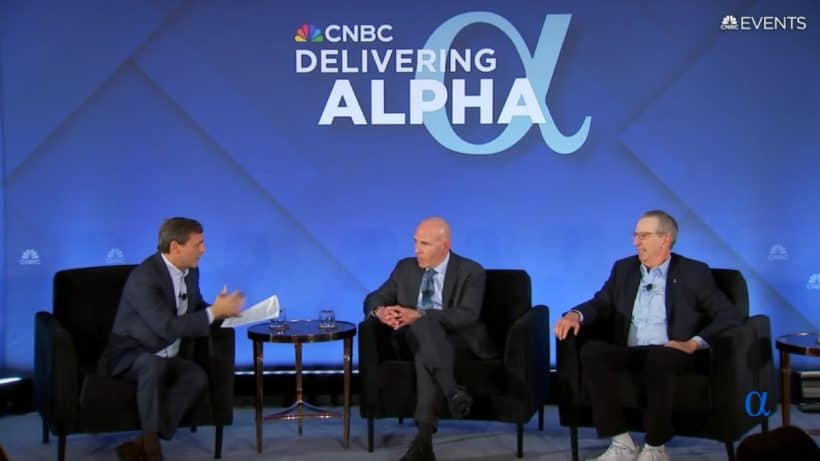Scott Rechler, chairman and CEO of RXR, and Bill Rudin, co-chairman of Rudin Management, delivered their market assessment of New York City real estate on the “Alpha and the City” panel at the 2025 Delivering Alpha Conference. RXR manages more than 30 million square feet of commercial property and over 9,600 multifamily units, while Rudin Management controls 16 office buildings comprising more than 10 million square feet of Class A space. Together, they are among the most active owners and developers in Manhattan, with direct visibility into leasing demand, capital flows, and development pipelines.
Their core message was that, despite the political shock of electing a 34-year-old socialist mayor-elect with no executive experience, “New York City is back.” Both argued that the election has created a short-term political dislocation rather than a structural break. CEOs are still committing to long-dated leases into 2028, 2030 and 2032, residential vacancy in the multifamily market sits near 1.5 percent, and in the week after the election 42 luxury condominiums traded above 4 million dollars. For investors prepared to look through the noise, they see New York as a durable ecosystem where every downturn has historically been an entry point rather than an exit signal.
Also see:
- 2024 CNBC Delivering Alpha Conference
- 2025 Sohn San Francisco Conference
- 2025 Capitalize For Kids Investors Conference
- 2025 13D Monitor Active-Passive Investor Summit
2025 Delivering Alpha Conference: Alpha And The City
Investment Strategy: Capitalizing on Political Dislocation
The panel framed the near-term risk to New York City real estate as political perception rather than fundamentals. The moderator underscored that mayor-elect Mandani is 34 years old, openly socialist, and has never run a large organization. Rechler described him as “a caricature, not a character,” which makes it easy for investors outside the city to focus on worst-case scenarios. He noted that in meetings across Europe, the Middle East and even at the Federal Reserve Bank of New York, where he serves on the board, the first question after the election has been about Mandani. Some institutional investors have already paused large commitments, telling RXR they want to “see how this plays out.”
Inside the city, the tone is different. Rechler and Rudin argued that people who live and work in New York “feel that energy” and continue to commit capital. They stressed that the city has already navigated 9/11, the global financial crisis, the De Blasio years, and COVID. “One mayor is not going to take down this city,” Rechler said. He highlighted Governor Hochul’s role as a fiscal backstop, noting that after the 1970s crisis, tax authority shifted to Albany. The governor effectively holds the veto pen on income tax increases and has privately reiterated that she will not approve higher income taxes. With a gubernatorial election in a year, they view the statehouse as a near-term “firewall” on fiscal policy.
For operators with long capital, political anxiety is a source of opportunity.


